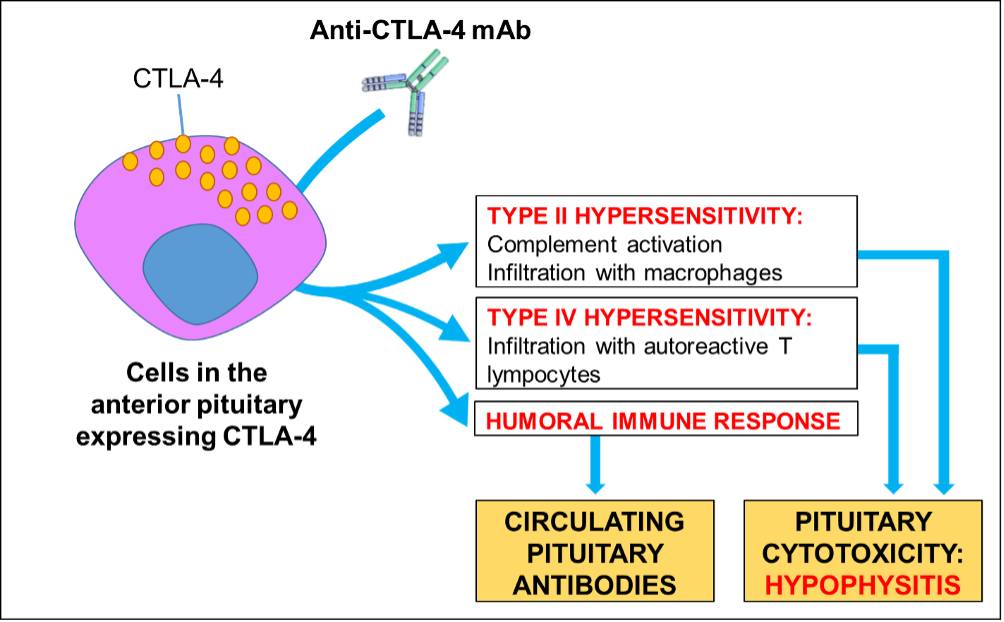
Figure 5. Proposed pathogenesis of anti-CTLA-4 antibody-induced hypophysitis. Anti-CTLA-4 antibody-induced hypophysitis accounts for ~70% of immune-checkpoint induced hypophysitis cases. The CTLA-4 antibody binds to pituitary CTLA-4 antigen, inducing complement activation and infiltration with macrophages and other inflammatory cells, leading to phagocytosis and enhanced antigen presentation. Subsequently, autoimmune type IV hypersensitivity reactions start, with infiltration of the anterior pituitary by autoreactive T lymphocytes that eventually leads to pituitary cytotoxicity and inflammation. Moreover, patients with anti-CTLA-4 antibody-induced hypophysitis develop pituitary antibodies that predominantly recognize TSH- FSH- and ACTH-secreting cells. Pituitary cytotoxicity in anti-PD1/PD1-L1 antibody-induced hypophysitis presumably affects mostly ACTH-secreting cells, as isolated ACTH deficiency is the most common occurrence in these patients.
